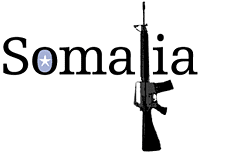Posted May. 25/06
 “From its earliest moments the operation went awry. The soldiers, with some notable exceptions, did their best. But ill-prepared and rudderless, they fell inevitably into the mire that became the Somalia debacle.” Report of the Somalia Commission of Enquiry.
“From its earliest moments the operation went awry. The soldiers, with some notable exceptions, did their best. But ill-prepared and rudderless, they fell inevitably into the mire that became the Somalia debacle.” Report of the Somalia Commission of Enquiry.
The Canadian Forces’ participation in the United Nations peacekeeping mission in Somalia in 1992-93 was, by most accounts, a disaster. Canadians remember the disgrace of the Airborne Regiment and the murder of civilians. But Grant Dawson, PhD/03, a research fellow with the Centre for Security and Defence Studies in the Norman Paterson School of International Affairs, sees more to the mission.

Grant Dawson, PhD/03 (Photo: Chris Strangemore)
“Thousands of lives were saved because Canadians provided a period of stability during the civil war,” says Dawson, a specialist on Canadian peace operations and post-war Canadian diplomatic and military history. “In addition to the civil conflict, there was a famine and a humanitarian crisis after the Somali state collapsed in 1991. Canadians helped alleviate that crisis.”
As the number of humanitarian and security interventions into weak and failed states has continued to increase, it is crucial that we glean lessons from those attempted previously. When interventions do happen, the provision of basic security and social order is one of the most critical tasks.
However, Somalia — with no recognized central government and still volatile more than 10 years later — has lessons to teach about the limitations of security-based peace building. Dawson is working on a comparative analysis of the international approach to failed state reconstruction in Somalia and Afghanistan.
His dissertation on the Canadian peacekeeping mission to Somalia will be published in fall 2006 by UBC Press as Here is Hell: Canada’s Engagement in Somalia. In the book, Dawson examines Canadian government decision-making and its commitments to the Somalia peace operations, considering both the governmental and operational aspects of Canada’s engagement in the United Nations and United States missions.
“In the Somalia operation, Canada adopted a cooperative approach. We wanted to motivate the Somalis to take the lead in rebuilding their state because if they didn’t support and invest in the solution, the peace wouldn’t last,” says Dawson. “The military couldn’t be in charge. Even in 1993, Canada’s leaders in Somalia realized that sort of thinking was outdated. The Somalis needed to be running the process to invest in and make it sustainable.”
While the soldiers provided security, without the re-establishment of political institutions and development efforts, the peace couldn’t last. Dawson points to two downfalls to the reconstruction effort: Canada and other nations weren’t prepared to stay in Somalia for the long haul, and the Somalis, resentful of outside interference, failed to maximize the opportunity that outside security offered.
“The notion that the winning approach couldn’t be only security-based was sound. Implementing it is a challenge that we continue to examine.”
—
Fast fact…
The Centre for Security and Defence Studies is internationally recognized for its advanced research; conference, workshop and guest lecture programs; graduate and undergraduate education; and public outreach programs on security and defence issues in the Ottawa community and across Canada.
In 2006, its annual conference, After the Fall: Theory and Practice of Post-Intervention Security, examined the short-term security challenges that follow military interventions into foreign states. Dawson chaired the panel discussion on responding to local populations.